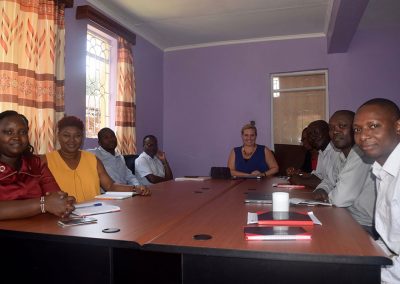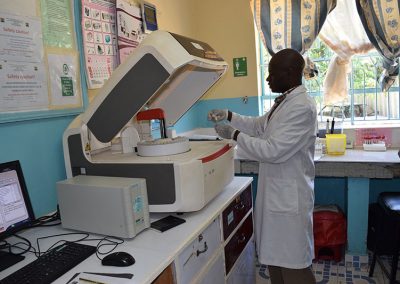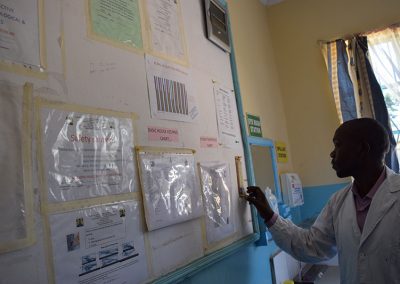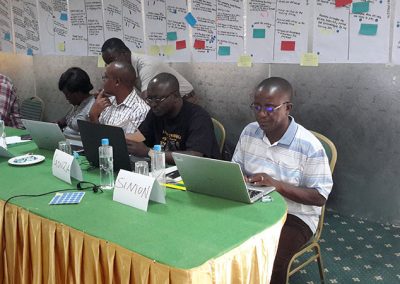GIS Kisumu Office
Western Kenya Laboratory Strengthening
Through the U.S. Centers for Disease Control and Prevention (U.S. CDC), the President’s Emergency Plan for AIDS Relief (PEPFAR) has granted a five year cooperative agreement to Global Implementation Solutions (GIS) to provide technical assistance to counties in Kenya to help in strengthening health laboratory systems. The project is expected to run for five years. GIS will work to enhance the capacity of the laboratories in Kenya to provide clinical support for HIV/AIDS and TB prevention, care, and treatment programs. This support will address the quality of testing, service interruptions, biosafety, and health care waste management, infection control and blood safety. This will lead to improved services and ensure test results reach the patient in a timely manner in order to contribute to patient care and treatment. GIS works closely with CDC to build laboratory capacity in 8 counties within the Western Region of Kenya (Kisumu, Kakamega, Busia, Homa Bay, Bungoma, Siaya, Migori, and Vihiga).
The objectives of our 5-year program are to:
- Provide technical assistance to the counties to draw upon existing national policies to develop and implement county level laboratory related policies, strategic plans, guidelines, and standards.
- Increase coordination and utilization of laboratory services related to HIV/TB disease management.
- Strengthen laboratory commodities management at facility level to reduce interruptions in HIV/TB diagnosis and management.
- Increase the number of laboratories meeting infrastructure guidelines and minimum biosafety standards, including medical waste management and infection control.
- Enhance the ability of individual participating laboratories to capture, manage and utilize data.
- Increase number of cases of HIV/TB/OIs detected, reported by the laboratories at all levels, and linked to treatment.
- Provide technical assistance and expertise in appropriate utilization of blood at health facilities and promotion of haemovigilance in liaison with the National Blood Transfusion Service (NBTS)
The specific activities to be undertaken include:
- Strengthening of laboratory systems at both county and facility levels.
- Improving the quality of clinical laboratory testing for the diagnosis of HIV in adults and children, clinical monitoring of HIV care and treatment, diagnosis and treatment of TB.
- Mentoring some high volume laboratories to full ISO 15189 accreditation through the SLIPTA process.
- Facilitate the development of SOPs for all the relevant tests and procedures.
- Support the county governments to domesticate national policies, plans and guidelines to local use. This will be done through a stakeholder participatory and consultative process.
- Develop/strengthen intra- and inter-county laboratory specimen referral networks and test results management systems.
- Support counties and facilities to strengthen commodity management systems to enhance forecasting, quantification and inventory management.
- Establish systems for routine monitoring, evaluation, and measurement of laboratory services including systems for monitoring and use of data for decision-making.
- Provide technical guidance and mentorship to promote best practices in Infection Prevention and Control (IPC), biosafety and health care waste management.
- Provide technical guidance and expertise to ensure appropriate utilization of blood and haemovigilance at transfusing facilities




